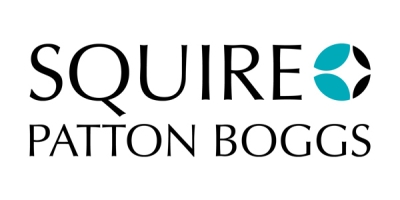Global Business @ Meridian: U.S. Department of Commerce

Overview
Meridian held an installment of the Global Business@Meridian breakfast series on July 28th, 2017. Hosted by Ms. Kate Beale, Associate Vice President at PhRMA, the program featured Aileen Nandy, Deputy Senior Commercial Officer and James Fluker, Principal Commercial Officer departing for India to assume their posts and drew over 20 corporate leaders together to engage in an off-the-record dialogue on economic challenges and opportunities in India.
Sponsor
In Attendance
Corporate Council Members:
U.S. Department of Commerce: Aileen Nandi (Deputy Senior Commerical Officer), James Fluker (Principal Commerical Officer), Jonathan Goldberg (International Trade Specialist)
Guests: The Cohen Group, Ecolab, FICCI USA, Lockheed Martin, National Association of Manufacturers, Pfizer, SANNAM S4, Sanofi Aventis, The Asia Group, Thomson Reuters, U.S. Chamber of Commerce, U.S. Federal Trade Commission
Meridian International Center: Puru Trivedi, Lizzy Ramey
Featured Remarks:
- Kate Beale, PhRMA
Following around-the-table guest introductions facilitated by Puru Trivedi, Ms. Beale highlighted the importance of the strong partnership that many of the companies around the table had with the U.S. Department of Commerce that has led to significant economic growth and opportunity in India. She opened up the floor to discussion so that representatives could highlight current initiatives and challenges they are currently facing in India.
Key Discussion Highlights
- Intellectual Property: Current IP policy in India is a challenge that faces nearly all the companies present at this breakfast. Despite recent policy changes that signified that there may be changes to the environment, India seems to now be backing away from codified international standards, presenting issues ranging from pricing of medical and pharmaceutical equipment to inability to access markets. Any solution should take a three-pronged approach: creating strong and clear IP policy, having strong institutions that enforce that policy, and maintaining predictive regulatory processes.
- Transparency in Government: One of the challenges in doing business in India is the abrupt and frequent policy changes. Ever-changing policies regarding energy or trade prevent consistent growth and increase compliancy risks for companies doing business in India. It is often difficult to understand who is the decision maker in the Indian government as well. Transparency and predictability would allow for American businesses to partner more with local entrepreneurs and companies to create lasting impact and change. The partnership that American companies have with counterparts at the U.S. Department of Commerce allow for more access and communication about these issues and others such as tax grade and pricing with the Indian government.
- Digital Finance: Demonetization in India presents opportunities for both consumers and the government. At the moment, India is losing out on a 3.2% increase in their GDP due to the shadow economy. A shift towards relying more on digital methods of payment would increase consumer protections and build a system of transparency and accountability from the ground up.
- Entrepreneurial Initiatives: Despite various challenges, many of the companies in attendance highlighted several fruitful entrepreneurial initiatives taking place in India. Pfizer recently launched Idea Delhi which connects local entrepreneurs with incubators so that they can learn the skills they need to grow their business. The emergence of smart cities in India presents opportunities for Caterpillar and STUDIOS to engage with local businesses and the government to build their infrastructure and transportation systems. Prime Minister Modi has led the way to open up defense contracts with private businesses in which Lockheed Martin is competing for currently. Additionally, Prime Minister Modi has instilled a sense of competitive federalism, allowing for businesses to engage directly at the state level, opening up many other opportunities.
Meridian looks forward to working with the U.S. Department of Commerce on a number of upcoming initiatives and remaining engaged with programming around India.
Project summary
| Global Business @ Meridian: U.S. Department of Commerce | July 2017 | |
|---|---|
| Number of Attendees: | 20 |
| Regions: | South and Central Asia |
| Countries: | India |
| Impact Areas: | Business and Trade |
| Program Areas: | Diplomatic Engagement |
| Partners: | Private Sector, Diplomatic Corps |








